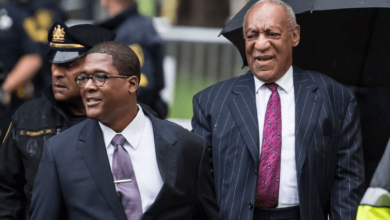Kelly Bates Asks Supporters Not to Take Out Their Anger on NBC 10: What Happened?

Kelly Bates recently addressed her supporters following a controversial report by NBC 10 that provoked significant backlash. Instead of encouraging retaliation against the network, Bates advocated for responsible media practices and called for a public apology. She emphasized the importance of constructive dialogue to address community concerns. This incident raises questions about media representation and the responsibilities of both public figures and news outlets. What implications does this have for future interactions between them?
Background of the Incident
As tensions escalated following a recent controversial report aired by NBC 10, Kelly Bates found herself at the center of public scrutiny.
The incident overview highlighted allegations that sparked a significant public reaction.
Supporters expressed outrage on social media, while critics questioned the integrity of the report.
This heightened emotional response underscored the divisive nature of the coverage and its impact on Bates’ reputation.
Kelly Bates’ Response
Kelly Bates issued a statement urging her supporters to refrain from directing their anger toward NBC 10 in the wake of the controversial report.
She emphasized the importance of media responsibility and acknowledged the need for a public apology from the network.
Bates encouraged her followers to channel their frustrations constructively, fostering a dialogue rather than perpetuating negativity against the media outlet.
The Role of Media Representation
Media representation plays a significant role in shaping public perception and discourse.
The impact of representation can be profound, influencing societal attitudes and beliefs. Media bias often skews narratives, affecting how individuals and groups are viewed.
This dynamic highlights the necessity for balanced representation, as it directly contributes to the understanding and acceptance of diverse perspectives in a free society.
Moving Forward: Constructive Dialogue
While frustration often leads to impulsive reactions, fostering constructive dialogue is essential for addressing tensions within the community.
Productive conversations can emerge when individuals prioritize respectful engagement over hostility. By encouraging open discussions, community members can articulate their concerns, leading to mutual understanding.
This approach not only diffuses anger but also cultivates a more harmonious environment, paving the way for collaborative solutions.
Conclusion
In light of the recent controversy, Kelly Bates’ call for constructive dialogue serves as a reminder of the importance of responsible media representation. By advocating for respectful engagement rather than retaliation, Bates encourages her supporters to foster understanding within the community. As society navigates the complexities of modern communication—akin to a town crier in a digital age—this approach may pave the way for improved relationships between public figures and the media, ultimately benefiting the community as a whole.





